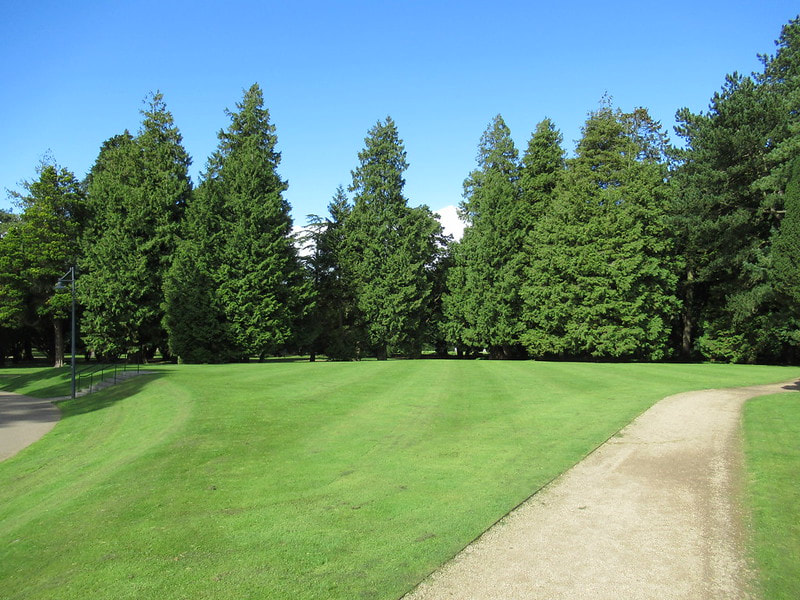|
"There is a time for everything and a season for every activity under the heavens...a time to plant and a time to uproot." (Ecclesiastes 3:1-2) Where plants and seeds are concerned, fall is the ideal time to put them into the ground. There are several reasons for this: moderating temperatures, lower humidity, moisture availability, and more time for roots to get established before summer heat causes stress and weeds try to take over. The best way to ensure that grass, shrubs, or trees prosper is to help them build a sturdy and extensive root system. Strong roots enable plants to endure during stressful seasons.
A procedure for helping grass seed to grow healthy root systems is called aeration. In this process, thousands of small plugs of turf and soil are removed from the lawn. If there is a buildup of thatch (a layer of organic debris that accumulates where the stem and root meet) it becomes a barrier to the benefits for a healthy lawn. Aeration reduces thatch and creates a path for water and nutrients. It goes together with over-seeding (the seeding of existing turf areas). The holes in the lawn give seed a place to settle in and protect it from winds that might blow it away or water that might wash it away. It is amazing how lawns are transformed into lush, thick, green carpets after this process is applied. Galatians 3:29 refers to Believers in Christ Jesus as Abraham's seed. "If you belong to Christ, then you are Abraham's seed and heirs according to the promise." As Abraham's seed, we are assured that God will plant us in ideal conditions for our growth and prosperity. He wants us rooted and established in His love. (Ephesians 3:17) Let us look back at God's original plan. Mankind was created with the dust of the ground and the breath of God. (Genesis 2:7) It was in the Garden of Eden that He placed Adam and Eve so that they would have the perfect place to live and grow and prosper in their relationship with the Lord. However, sin entered the picture, and He was forced to remove Adam and Eve from the Garden. As time went on, Scripture tells us that "The Lord was grieved that He had made man on the earth, and His heart was filled with pain." (Genesis 6:6) God decided to destroy all of life except for Noah and his family, who were found righteous, and the animals that he gathered. A flood was sent that eradicated every living person, animal, and plant that was not protected in the ark. After the waters receded, a new covenant was made between Noah and God, and Noah was given these instructions: "Be fruitful and increase in number and fill the earth." (Genesis 9:1) From Noah's son Shem came Abram (Genesis 11:10) who would be called Abraham. His line would be the one through which God would make an eternal covenant. God told Abraham, "That in blessing I will bless thee, and in multiplying I will multiply thy seed as the stars of the heaven, and as the sand which is upon the seashore, and thy seed shall possess the gate of his enemies." (Genesis 22:17-KJV) Nothing would stop the growth of this seed and the manifestation of the promises of God from generation to generation! From Abraham's seed came the Davidic line—the line of our Lord Jesus Christ. Isaiah the prophet declared that God would make an everlasting covenant with His people and that "Their seed shall be known among the Gentiles, and their offspring among the people: All that see them shall acknowledge them, that they are the seed which the Lord hath blessed." (Isaiah 61:9 - KJV) We are the seed of God, blessed to be planted by the Divine Gardener in an environment where we can root and grow in His love. Let us praise Him for the way He nurtures us. May we grow to glorify Him. |
Joan E. MathiasCategories
All
Archives
July 2024
|

 RSS Feed
RSS Feed